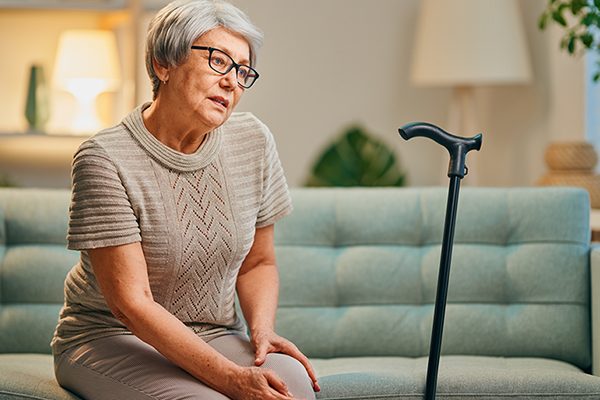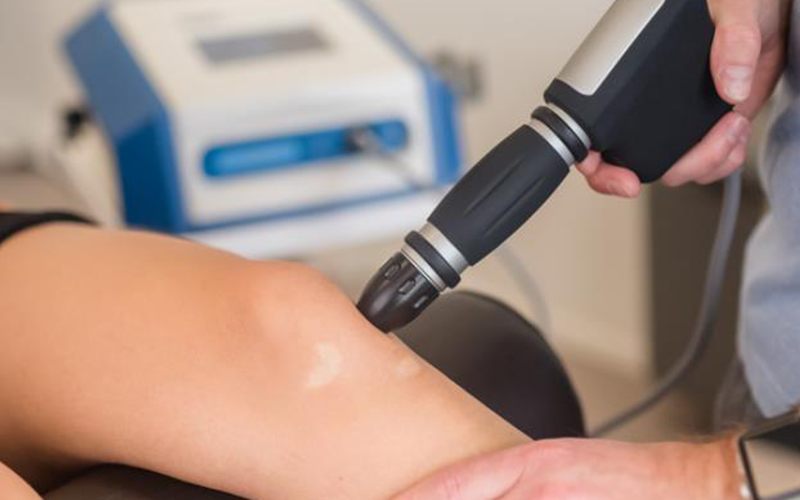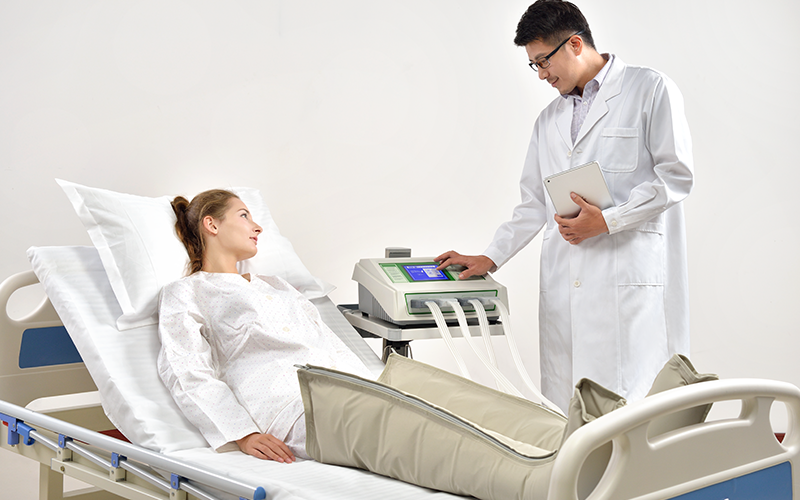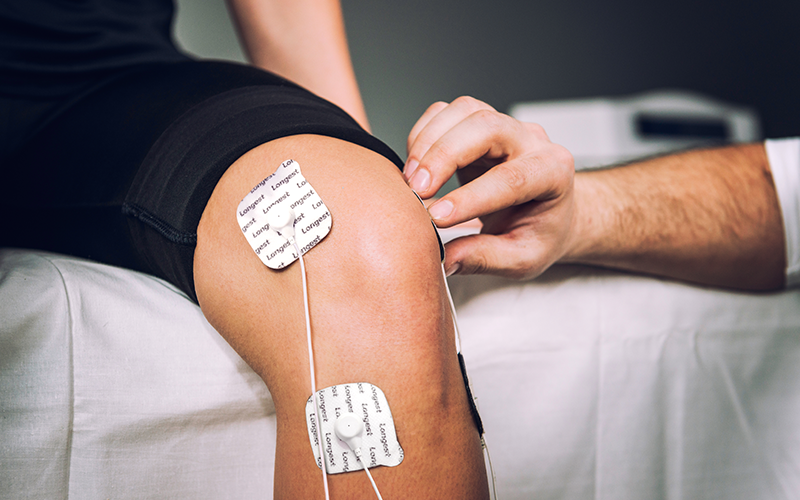Musculoskeletal (MSK) Conditions

MSK conditions are a global public health concern. Approximately 1.71 billion people have musculoskeletal conditions worldwide, including low back pain, neck pain, fractures, other injuries, osteoarthritis, amputation, and rheumatoid arthritis. In some cases, living with MSK conditions can have consequences for the life chances of an individual through the loss of work, and dependence on the state, family, and friends.
As the world’s population is aging, the rehabilitation needs for MSK conditions will further increase in the years to come, which is a considerable challenge for the health system to cope with. Longest, as a fast-growing company in physiotherapy and rehabilitation, provides a wide array of technologies that support healthcare departments towards best-in-class patient care and operational excellence. We are committed to creating a better environment of physiotherapy & rehabilitation for all and making affordable physio & rehab services reach everyone.
No. While the prevalence of musculoskeletal conditions increases with age, children and adolescents are also affected. Musculoskeletal conditions are relevant across the life-course – from childhood to older age. Many chronic conditions that begin in childhood continue into adult life.
What Are Musculoskeletal Conditions?
Musculoskeletal conditions are injuries of the muscles, nerves, tendons, joints, cartilage, and spinal discs, which can lead to temporary or lifelong limitations in functioning and participation. The conditions are typically characterized by pain and limitations in mobility and dexterity, reducing people’s productivity and quality of life.
Common MSK Conditions
- Arthritis
- Tendonitis
- Tenosynovitis
- Epicondylitis (Tennis/Golfers’ Elbow)
- Bursitis
- Carpal/Cubital Tunnel Syndrome
- Trigger Finger
- Ruptured or Herniated Disc
- Thoracic Outlet Syndrome
Risk Factors
There are many risk factors for the development of MSK conditions that everyone shall be paid more attention to. If you are exposed to these risks, early detection and intervention can help manage MSK health.
Force. The risk of musculoskeletal injury increases if the amount of force required to perform the job exceeds the worker’s physical capacity, such as heavy lifting, heavy load carry, etc.
Poor postures. Postures directly affect musculoskeletal health. During movements that involve lifting, bending, reaching, or carrying an object, poor postures can cause imbalances, and place great stress on the muscles and spine, which could increase the risk of injury.
Repetition. Repetitive movement can cause discomfort, pain, and temporary or permanent damage to the soft tissues in the body.
Obesity. Excess weight puts added stress on joints, especially knees, causing pain and injury. “Being just 10 pounds overweight increases the force on your knees by 30 to 40 pounds with every step you take,” says Kevin Fontaine, Ph.D., assistant professor of rheumatology at Johns Hopkins University.
Smoking. Smoking is associated with low bone mineral density (BMD), putting your musculoskeletal system at risk of injuries such as rotator cuff tears, bursitis, tendonitis, sprains, and fractures. Age. After age 30, people begin to lose as much as 3% to 5% of their muscle mass each decade, the joint becomes less resilient and the density of bones begins to diminish, making people more susceptible to falls and injury.
Longest Solutions for MSK Conditions Rehabilitation
Early intervention and management of musculoskeletal conditions are crucial to control the symptoms and prevent them from getting worse. Longest provides simple-to-perform and cost-efficient treatments to address many musculoskeletal conditions and better care for people’s health.
- Approved Rehabilitative Treatment
- Non-invasive treatment
- Reduced needs for surgery
- No Downtime
- Lower Cost
- Minimized Side Effects

Extracorporeal Shockwave Therapy (ESWT)
It is increasingly used to treat a number of musculoskeletal conditions including plantar fasciitis, tennis elbows……

Intermittent Pneumatic Compression (IPC)
Using inflatable sleeves that apply pressure to the legs, hips, or arms to treat various musculoskeletal conditions.

Electrotherapy
Relieves musculoskeletal pain effectively by delivering electrical pulses through electrodes placed around the painful areas.
✔ Tackle the Gnawing Musculoskeletal Pain
Musculoskeletal pain affects between 13.5% and 47% of the general population. It is debilitating, interfering with the ability to sleep, work and enjoy life. And it has become more evident that musculoskeletal pain is a major cause of disability. What’s worse, it can not only aggravate other health conditions but also lead to mental problems, such as depression and anxiety.
How to relieve pain effectively? Pain can take many forms. There’s not a one-size fits all approach. Pain medication is widely used, but the side effects such as addiction are still worrying. Surgical intervention can repair specific problems, but the cost is high and require care and recovery after the operation.
✔ Restore Mobility, Maintain Quality of Life
Musculoskeletal conditions are the biggest contributor to years lived with disability (YLDs) worldwide with approximately 149 million YLDs, accounting for 17% of all YLDs worldwide.
Mobility plays a fundamental role in the quality of life. It enables people to carry out normal daily activities, live independently, actively, and with dignity. And the human body thrives on movement. Prolonged immobility can lead to serious health problems that require complex care, such as cardiovascular disease.
✔ Promote Healing of Musculoskeletal Injuries
Musculoskeletal injuries have a devastating impact on people‘s lives and livelihoods. The injuries cause pain and movement difficulties. People in pain often lose the ability to concentrate and have sleeping problems, resulting in decreases in quality and productivity at study and work. And limited mobility can interfere with daily activities and social life. It may become difficult to prepare meals, maintain a clean home, go out with family, and enjoy hobbies. The physical limitations can also lead to emotional stress and loss of confidence and independence.
More Information
Download: Musculoskeletal Health Solution Brochure
Contact us
If you are interested in our solution and looking for more info, please do not hesitate to contact us. Submit the form below and we will get back to you shortly.

